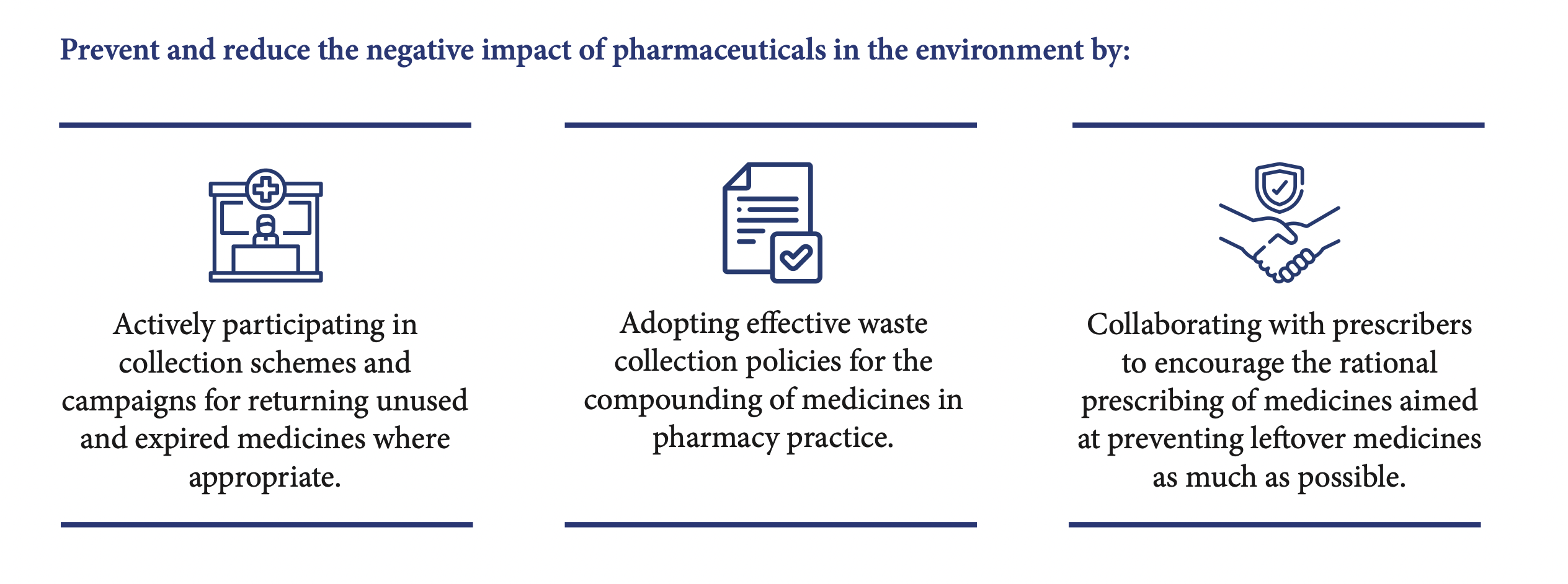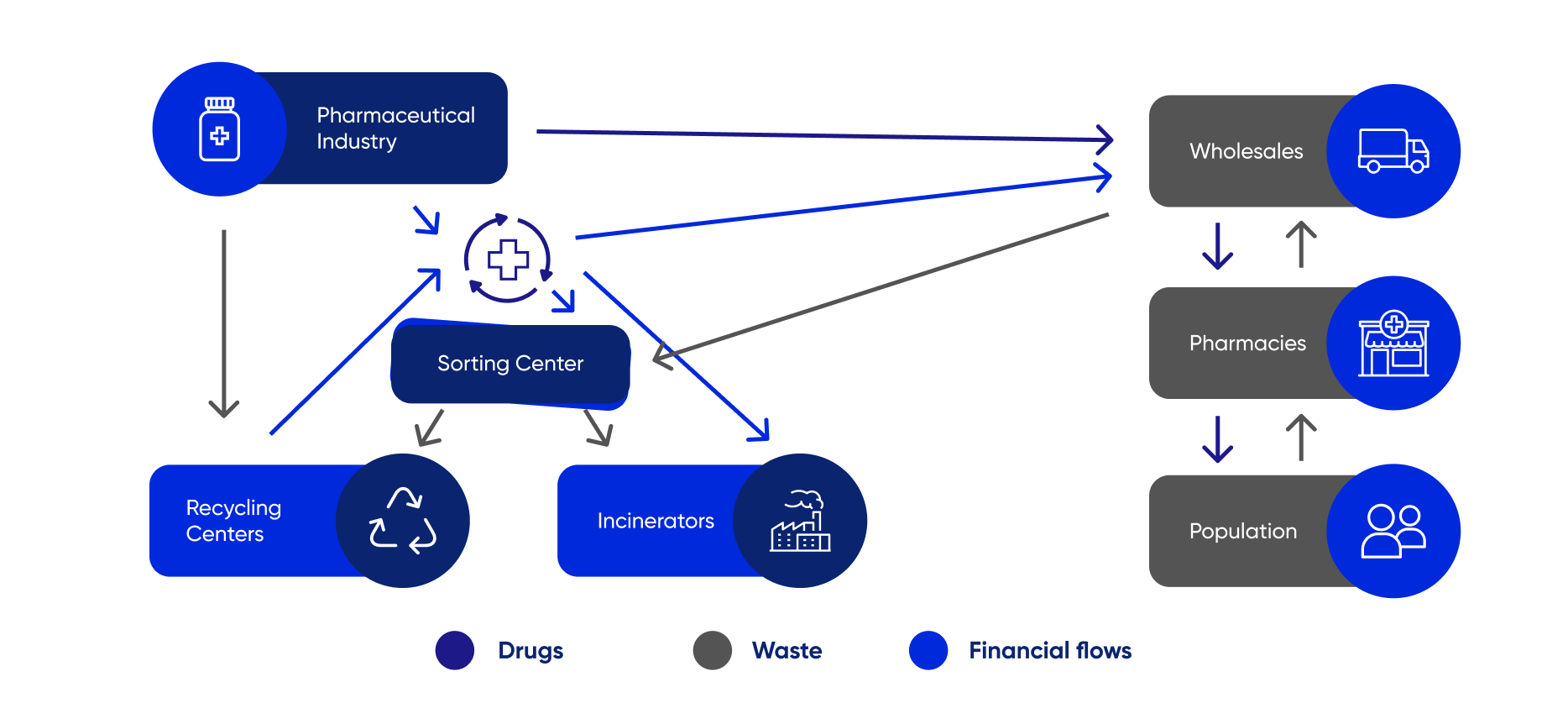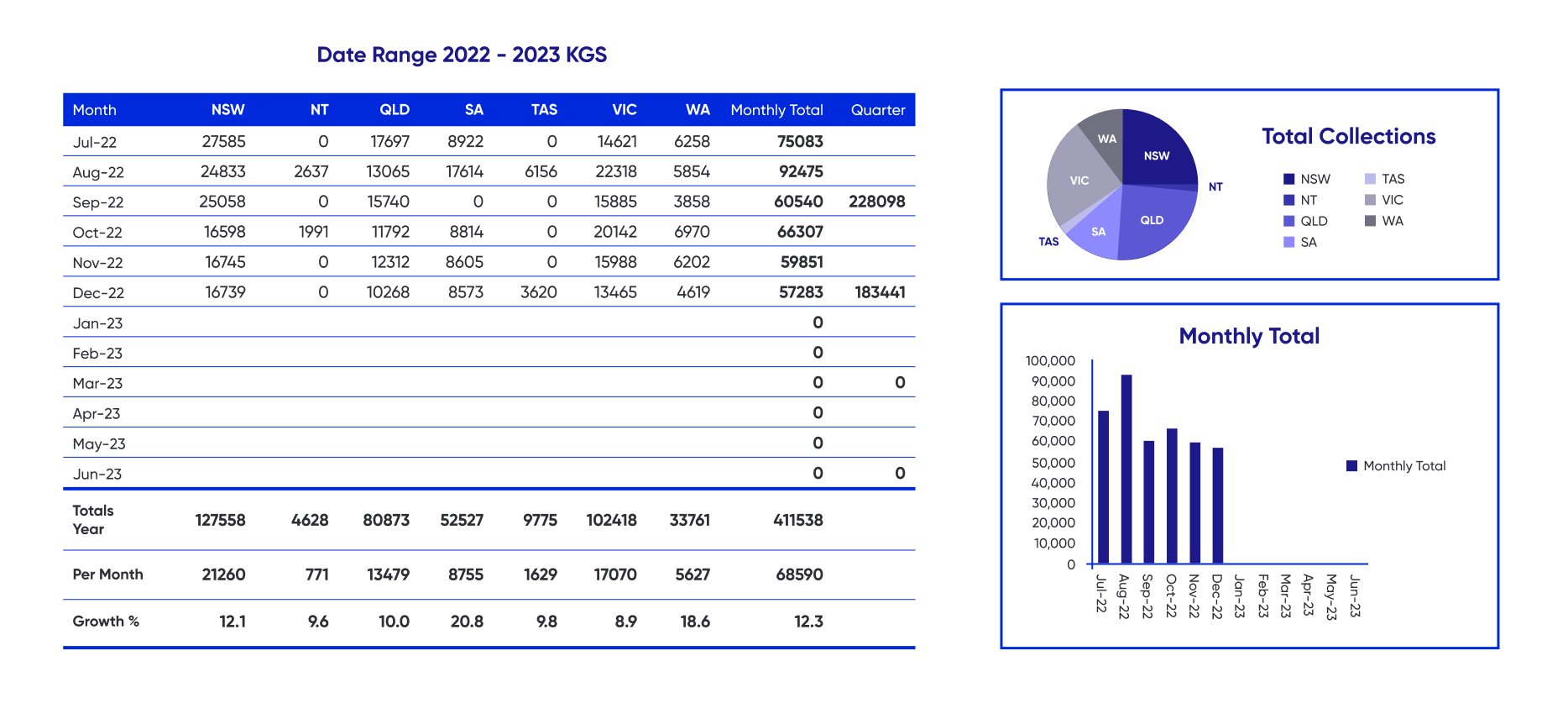

services
logistics
REGULATORY SUPPORT AND CUSTOMS CLEARANCE
services
logistics
REGULATORY SUPPORT AND CUSTOMS CLEARANCE
 07 Mar 2023
07 Mar 2023
Did you know that the pharma industry alone emits 52 megatonnes of CO2 equivalent per year? And don't even get us started on the waste generated by clinical studies.
But fear not, because companies like COREX are stepping up and taking responsibility for their environmental impact. They offer Reverse Logistics services to ensure that pharma waste is disposed of sustainably. And it's not just them — governments, the pharma industry, and even the general public are all doing their part.
So, let's all do our bit and send back our waste responsibly. Because as they say, sending back is the way forward. Want to learn more about how we can make a difference?

The need for increased sustainability
Our planet is in crisis and we’re at a key moment in tackling the issue of the environment before it’s too late.
One of the major sustainability challenges globally is the management of solid wastes, — exacerbated in recent years by the waste surge caused by COVID-19. A rapidly-growing world population has, of course, increased the amount of waste produced and has created a problem which threatens to overwhelm us if not managed. Particularly complicated and concerning is the issue of medical waste, the full impact of which on the environment is as yet unknown. What is known is that the unnecessary introduction of such waste in the environment should be minimised.
SO WHO NEEDS TO ACT?
Health Services? Pharmaceutical companies? Governments? Consumers?
The answer is — everyone. Society as a whole needs to work together to mitigate this problem and come up with efficient ways to collect, treat and transport these materials; to neutralise them or reuse them. To the everyday user, Reverse Drug Logistics seems like something complicated that healthcare providers and pharma companies should be dealing with — but reverse drug logistics starts with all of us.
Pharmaceuticals, such as medicines, can end up in the environment in a number of ways. Improper disposal is one such way — whether that’s at an industrial level or as simple as flushing medicines down the toilet or pouring them down the sink. Discharging antibiotics, for example, into the environment, can promote the natural development of antibiotic-resistant pathogens which is of enormous concern.
Many countries worldwide have implemented special medication disposal schemes in order to prevent pharmaceuticals from ending up in the environment. Let’s look at some of these reverse logistics strategies that are in place.
THE EU
Community Pharmacies across Europe are strongly committed to helping reduce the impact of pharmaceuticals on the environment and prevent unnecessary waste.

Here are just some examples in action:
The French drug take back system, called Cyclamed, compulsory since 2007 and 100% funded by drug companies, brings together the entire pharmaceutical profession — dispensing pharmacists, wholesaler-distributors and drug companies. And there has been extensive buy-in from the French population as a whole, encouraged by messages communicated through TV, radio and digital platforms.
The well-known system works as follows:
Households identify unused, unnecessary or out of date medicines, separate the cardboard packaging and leaflets for recycling and bring the medicines to a pharmacy.
Pharmacies accept and safely store the medicines for collection for free — the recycling process is financed by a tax on manufacturers.
Wholesaler-Distributors collect the medicines from the pharmacies and deliver them to Cyclamed.
Cyclamed takes responsibility for transporting medicines for destruction — they are burned to produce steam and electrical energy which is recovered.
The results have been extremely positive in an economic, political, pharmaceutical and environmental context.
Source: cyclamed.orgStatistics from Cyclamed show that 93% of French people find the service essential or useful
78% of French people say they deposit unused medicines in pharmacies
44% separate the cardboard boxes from the medication before depositing them in pharmacies
89% of French people who have not yet returned their unused medication are ready to do so
Valormed is the Portuguese equivalent system. Created in 1999, it’s an initiative of pharmaceutical industry stakeholders, with resources supplied from members of pharmaceutical associations — pharmacies, industries, distributors and pharmaceutical and chemical importers. Pharmaceutical companies pay an eco-fee for packaging placed on the market and pharmaceutical waste is incinerated.
“Medicine Use — We Are All Responsible” is the slogan of one Valormed campaign to inform, promote best practices and raise awareness among the general population, healthcare professionals and policy makers regarding the responsible use of medicines. Nationwide awareness is heavily promoted through TV, newspaper, outdoor and in-pharmacy campaigns.
Pharmacies are a key link in the chain which helps patients to take responsible action in disposing of medicines. They accept returned medicines and deposit them in VALORMED’s containers where they are taken by wholesalers in order to be treated in specific locations. According to the Pharmaceutical Group of the European Union (PGEU) which is an association representing pharmacists in 32 European countries, in 2019, 98% of Portuguese pharmacies were adherent to the VALORMED system.
An overview of how VALORMED works in practice:

The waste handling of pharmaceuticals in Sweden is regulated by legislation. Since 2009, pharmacies are obliged to take back leftover household medicines for free, and to inform the public how and why they should take back their unused and unwanted pharmaceuticals.
The country has a long tradition of returning unused medicines to pharmacies — since 1971, in fact; and Swedish pharmacies collect 1300 tons of unused medicines each year according to the annual trade report of the Swedish Pharmacy Association.
Pharmaceutical companies, in turn, are responsible for making responsible choices with regards to packaging and are supervised by the Swedish Environmental Protection Agency.
The non-profit medicine reverse logistics system in Spain is known as SIGRE. Pharmaceutical companies place the SIGRE symbol on their labels to indicate that they comply fully with healthcare and environmental regulations. The SIGRE symbol also lets the public know exactly where to dispose of packaging and leftover medicines.
Distributors must guarantee a rapid and efficient logistics system and ensure that waste medicines are correctly checked and guarded. They are subject to strict health regulations. The pharmaceutical distribution sector plays a crucial role in spreading the health and environmental messages of SIGRE by supplying awareness-raising materials to keep the public informed.
Down under, the Return Unwanted Medicines project is an initiative that, like its EU counterparts, provides consumers with a free and convenient way to dispose of expired and unwanted medicines. Anyone can return their household medicines to any community pharmacy anytime for safe collection and disposal.
RUM, in existence since 1999, is a national not-for-profit company and is the main Australian medicine collection programme, the costs of which are covered by the Australian Ministry of Health with support from the pharmaceutical industry for some collection and disposal of the waste generated.
The returned medicines are disposed of by high-temperature incineration, which is in accordance with regulatory and EPA requirements.
RUM bins are found in all PBS supported community pharmacies across Australia. Here’s a glance at how collections are going so far in 2023.

While the country doesn’t have a national drug collection programme or, indeed, federal laws governing the reverse logistics of medicines, over the past few years take-backs have proliferated throughout North America.
The FDA does offer advice on its website for the safe disposal of unused or expired medicine but there is currently no coordinated campaign or initiative across the United States as a whole, and initiatives and funding are temporary and not in any way cohesive. Consumers are advised to check the DEA website, their local drugstore or police station and can check if their unwanted medication is on what’s called ‘The FDA Flushlist’ which outlines which medications can go in household waste disposal and which can be flushed down the toilet.
South of the border, Reverse Logistics of postconsumer medicines is in its infancy in Brazil, where environmental contamination due to the disposal of drugs is a concern. There is no specific legislation, however since 2011 the government has been trying to establish a sectoral agreement between industry, distributors and pharmacies to implement reverse logistics for the management of domestic medications.
Reverse Drug logistics is in an embryonic process in Brazil. A recent study published by Science Direct into the implementation of reverse logistics from health centres in the country concluded that, while regulations and laws being created to encourage good industry practice in the product and management of drug residues which could generate a reduction of around 12% in volume each year, there is a need for government participation in transporting them safely, and also education of the population at large on the subject.
A reverse logistics programme in Brazil will not be effective without the buy-in of consumers. It is they who will transport the product to be discarded to the initial collection point.
REVERSE LOGISTICS THE COREX WAY
At COREX, we operate a little differently when it comes to Reverse Logistics in that we will remove drugs, equipment and clinical trial materials from research centres or collect unwanted medicines and equipment from individual patients under our Named Patient Programme. What is consistent worldwide, however, no matter what sort of Returns are being made, is the care and consistency of quality that’s applied to the process.
At COREX, we examine information and determine risk at the start of a study, taking into consideration country-specific challenges and how we aim to overcome them. Specialist personnel gather all of the necessary information — when, how much, from where to where? What do we require, what space is needed for storage.
Only when a firm plan is in place does special, temperature-controlled transport take place. At every step of the way, we treat materials with maximum care and attention using the latest in technology and cold chain delivery and constant monitoring by specialists.
And why?
Because, like all of the countries doing their utmost to manage pharmaceutical waste disposal, we believe firmly in sustainability and in taking care of the future of our planet.
COREX Logistics is a supply and logistics company with headquarters in Ireland, working with pharma and patients to facilitate improved healthcare worldwide.
Our expert international team works across an 80-country network, specialising in the EMEA region, providing the latest in clinical trial logistics technology and systems, cold-chain delivery, temperature-controlled transportation and storage services. From sourcing, procurement and customs clearance, to labelling, returns and destruction, we cover every link in the supply chain. We also run an established Named Patient Programme and provide Patient-Oriented services. With extensive knowledge and on-the-ground insight into our markets, we create innovative solutions with the ultimate goal of improving the lives of patients.
To learn more about our range of expert services, contact us today on info@corex-logistics.com
If you found this article helpful, consider sharing it with others who might also benefit from it. Sharing knowledge is a wonderful thing to do and can be very helpful to others.
We’re here to help.
Email us at
info@corex-logistics.com
or use our feedback form to send us your question.
This website uses cookies to improve user experience. By using our website you consent to all cookies in accordance with our Cookie Policy.

